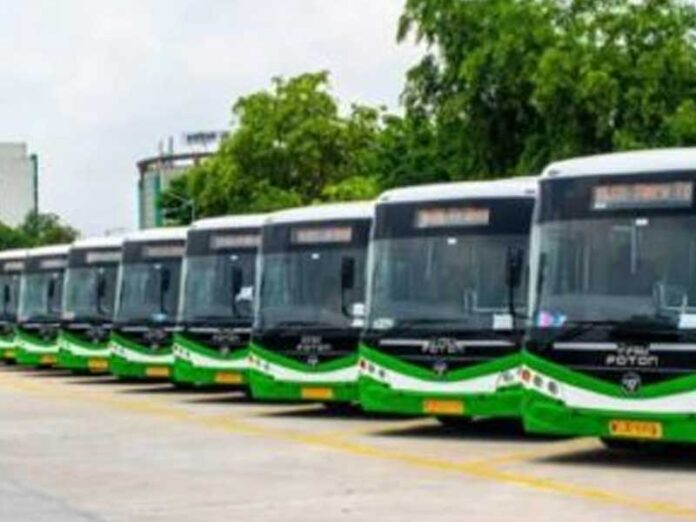CNG conversion: Expert allays fear, urges motorists on kits usage
CHIGOZIE AMADI
A CNG conversion expert, has allayed fear being entertained by Nigerians over the use of CNG, and urged motorists to visit standard conversion centres to convert their petrol vehicles.
The expert, who is an official of the NASENI – Portland Gas Limited Conversion Centre, made this known on Sunday in Abuja in an interview with the News Agency of Nigeria (NAN).
The expert spoke to NAN under condition of anonymity.
NAN reports that some motorists and Nigerians had expressed concern over the conversion of petrol vehicles to
Compressed Natural Gas (CNG) in view of its high cost, lack of expertise, fear of damaging vehicles and limited infrastructure.
Speaking with NAN, the expert cautioned motorists against the usage of roadside and amateur personnel while trying to convert their vehicle engine to avoid damage.
He implored motorists to engage the services of professionals at authorised standard centres and also avoid usage of inferior kits and cylinders, especially cylinders that were not completely made of steel.
According to him, some cylinders are so inferior and not good to be used, in the sense that they are made of steel and fibre, and urged motorists to avoid such cylinders during conversion.
“We have a standard at Portland Gas Conversion Centre, we use high quality and complete steel cylinder which has heavy weight.
“CNG is good and safe, I give motorists 100 per cent confidence and assurance in ensuring that their vehicles are converted.
“The only disadvantage I see is the space in the boot which the cylinder will occupy after conversion and there is no other disadvantage.
“Compressed Natural Gas is lighter than air, it is not like Liquefied Petroleum Gas (LPG), Diesel or Premium Motor Spirit (PMS) that can easily pour or spark up fire.
“We do hybrid conversion, we do not do full conversion of vehicles because the CNG has not gotten to the Northern part of the country, so we allow people to use gas and fuel by fixing a switch which works as a gauge and as an interchange,” he said.
He lauded the ongoing Presidential Compressed Natural Gas Initiative (Pi-CNG) programme which ensures that the common man was sensitised, especially the commercial taxi drivers, the benefactors.
NAN recalls that in view of high cost of conversion, the Pi-CNG signed an agreement with Conversion Workshop Owners to fast-track free CNG kits and conversion of one million vehicles under the unionised commercial operators to tackle barriers in Nigeria’s commercial transport entities.
According to the expert, the main focus of the government is to get many vehicles in the commercial sector to be converted for the benefit of the masses in view of cutting down the cost of transportation by 75 per cent.
He, however, appealed to the Federal Government to bring down the cost of conversion of vehicles to CNG engine for other Nigerians to benefit as well.
He further explained that 4-plugs vehicles are being converted at the rate of N1.2 million, while 6-plugs (V-6) vehicles are being converted at N1.5 million, adding that the rates could vary based on centres and source of purchase.
He said every part of the conversion kits down to the cylinders was being imported, adding that prices of the kits were determined by countries they were being gotten from which include India, Brazil, Germany and Argentina.
“That is why some conversion centres charge between N750, 000 and N1.6 based on the country of purchase.
On limited CNG Infrastructure, he wondered why other oil and gas private marketers such as A. A Rano, Ushafa and TotalEnergies, among others are not selling CNG like NIPCO.
He urged the Federal Government to tackle the issue and boost its infrastructure development.
Speaking with NAN, Dr Chijioke Ekechukwu, an economist and motorist expressed worry that conversion to CNG could look like a solution, but attendant damages in the future may not be known now.
“Firstly, most cars are of high quality and of high technology, built with precision. Building a CNG device, which ab- initio was not in the technical plan of the vehicles, may cause some damage to the system.
“Secondly, the high cost of conversion does not make it attractive and affordable to the middle and lower income earners,” he said.
He said the government needed to make concerted efforts towards solving the high transportation cost issues in the country because the situations on the ground did not suggest that they have the will yet.
Another motorist, Mr Lawrence Nze, said the development could seem cost effective in the short run, but with the rate of inflation, CNG cost would be high like that of petrol when the demand of CNG becomes higher.
President Bola Tinubu, had upon adoption of CNG which currently sells between N230 and N260 per kg promised that Nigerians could benefit from reduced cost of transportation by ensuring its proper implementation. (NAN)

























